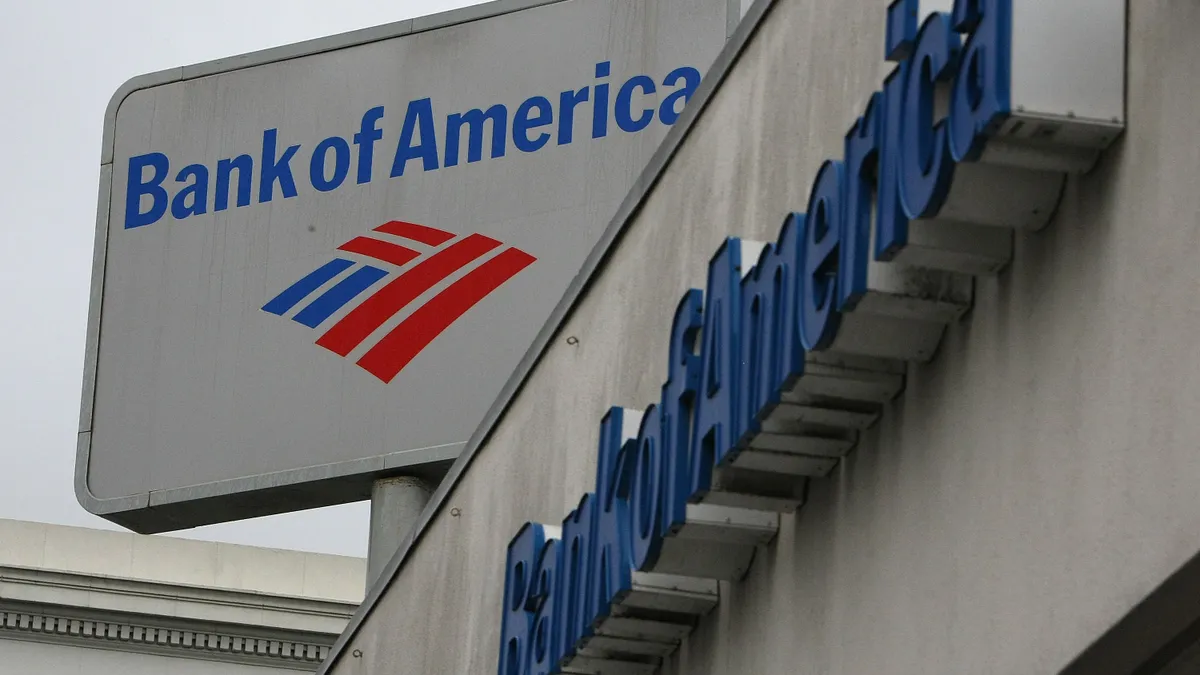Bank of America was sued last month by a customer claiming that the bank failed to reimburse him for fraudulent losses incurred when he used its Zelle money transfer service, echoing the claims against Zelle in an April lawsuit brought against another bank, Wells Fargo. Both lawsuits seek class-action status.
In the latest case, plaintiff Mohammad Al-Ramahi alleges he was tricked into sending $4,950 through Zelle in April 2020 as part of a scam in which he thought he was sending the money in his role at a new job. When he discovered that wasn’t the case and that his money was gone, Bank of America refused to reimburse him for the loss, he alleges in his lawsuit filed on May 27 in U.S. District Court for the Northern District of California. He alleges further that the bank didn't warn him about the risk of such losses when using the person-to-person payment app.
“The unique, misrepresented, and undisclosed architecture of the Transfer App payment systems and BofA’s own fraud policies means...that virtually any money transferred for any reason via a Transfer App is gone forever, without recourse, reimbursement, or protection for victimized Accountholders,” the lawsuit says. That runs counter to the bank’s marketing of Zelle as a “fast, safe and secure way” to send money, the plaintiff alleged.
Bank of America and Wells Fargo declined to comment. Zelle didn't immediately respond to an emailed request for comment.
Legal parameters in the area are in flux, said one lawyer who specializes in payments. "For decades the consumer protection regulations regarding electronic fund transfers said a bank was not liable for a payment if consumers willingly provided their credentials to another party, even if the purchase generating the payment turned out to be fraudulent," attorney Stephen Middlebrook said in commenting on the litigation. The Consumer Financial Protection Bureau "is trying to change the rule so that now the bank is liable for so-called 'unauthorized transactions' even when the consumer freely consented to the transaction."
The Zelle business, launched in 2017, is a subsidiary of Scottsdale, Arizona parent company Early Warning Services, which in turn is owned by the biggest U.S. banks, including Bank of America and Wells Fargo. The lawsuit says that users sent $490 billion over the app last year.
It also alleges that some 18 million Americans were defrauded in similar schemes perpetrated on person-to-person money transfer apps like Zelle in 2020, according to industry consulting firm Javelin Strategy and Research. The New York Times chronicled extensive fraud allegations related to Zelle in a March feature in which the banks deflected responsibility mainly by saying the consumers authorized the payments.
The plaintiff argues that the bank’s failure to protect consumers is a breach of contract for fair dealing and violates California laws designed to protect consumers. “BofA maintains a secret policy whereby it refuses to reimburse fraud losses incurred via Zelle, even where its accountholders timely inform BofA of the fraud,” the lawsuit said. “BofA misrepresents and fails to disclose this secret policy.”
The lawsuit cites a letter by U.S. Senate Democrats Elizabeth Warren and Robert Menendez that questioned Zelle parent Early Warning Services over “disturbing reports of a rise in fraud.” In the May letter, the lawmakers sought information on the dollar value of the overall reported fraud, the number of cases in which Zelle provided refunds — and the value of those refunds — and the number of cases Zelle referred to law enforcement or banking regulators.
In the earlier April lawsuit against Wells Fargo, filed in U.S. District Court for the Central District of California, the plaintiff Jessica Stock alleged she lost $1,000 as a result of a scam at that bank that involved Zelle. In the fraud, she received a call in December 2021 from a person who purported to be a Wells Fargo employee, but was not, and who persuaded her to share a verification code that allowed the fraudster to take the money from her checking account, the lawsuit said.











